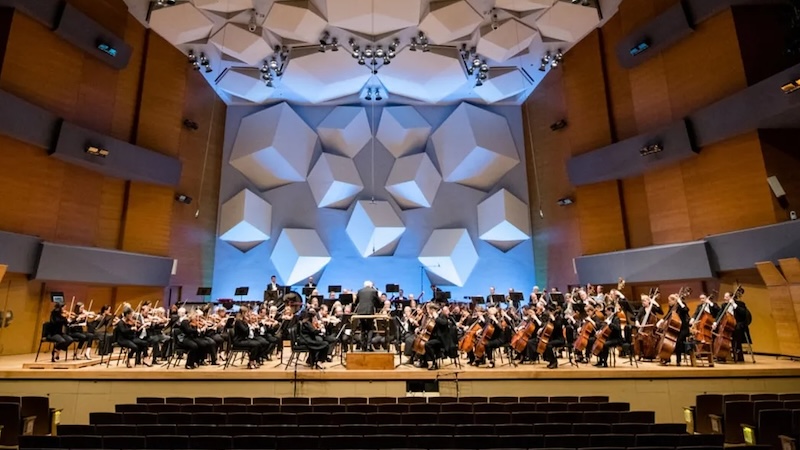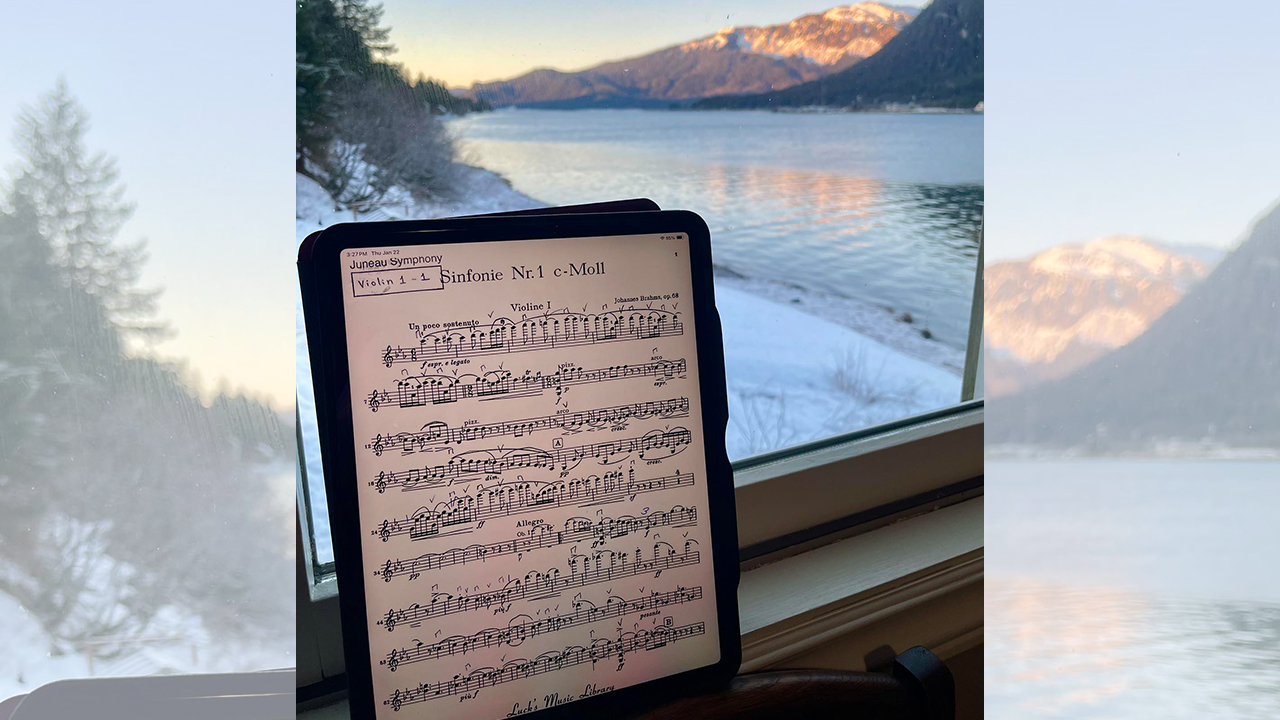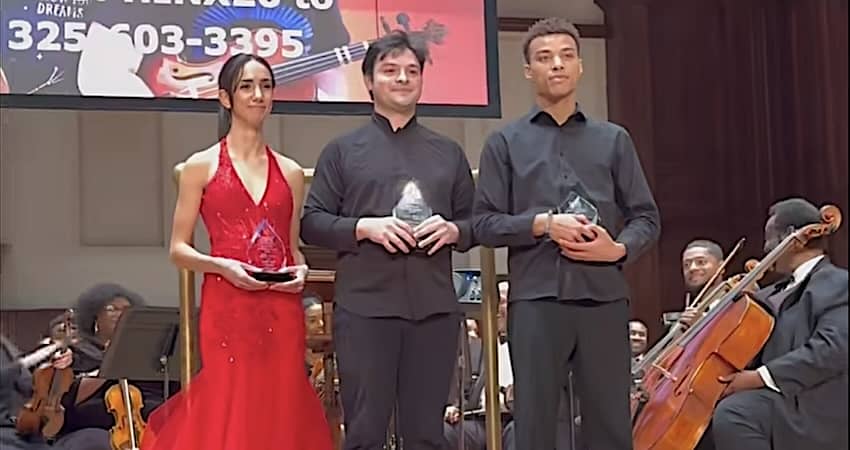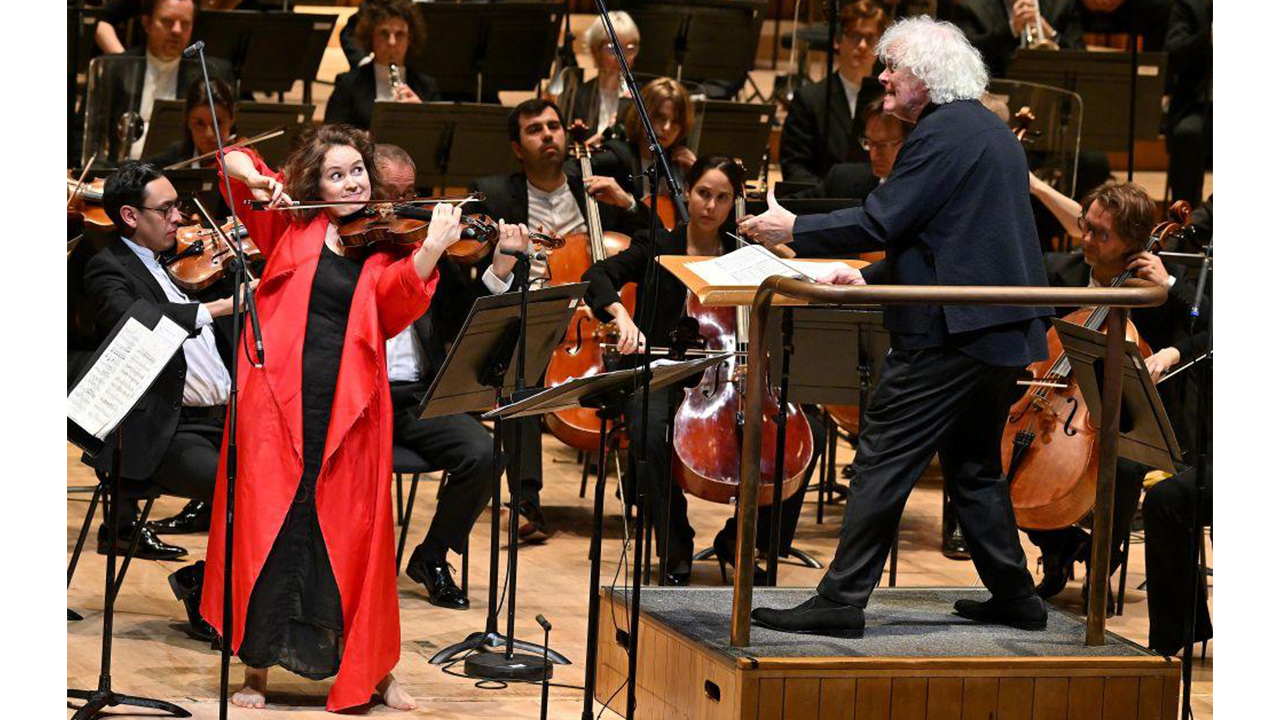We have thousands of human-written stories, discussions, interviews and reviews from today through the past 20+ years. Find them here:

Minnesota Orchestra Changes Program to Commemorate Alex Pretti and Renee Good
On Friday the Minnesota Orchestra announced a special piece to be played at its weekend concerts in memory Minneapolis residents Alex Pretti and Renee Good, who were recently killed in Minneapolis by ICE agents.
The heart-rending "Adagietto" from Gustav Mahler’s Symphony No. 5 will open its Friday and Saturday concerts, in place of "The Sorcerer’s Apprentice" by Dukas.
"In light of the circumstances in our community right now, the program will open with the Adagietto from Mahler’s Symphony No. 5, instead of Dukas’ The Sorcerer’s Apprentice. We offer in in memorial for Alex Pretti and Renee Good - and we share it with love for our audience and our beautiful city on a program that explores the resilience of finding "songs to sing" amidst tragedy and seeing hope in darkness."
Here is the concert:
Interview with Hyun Jae Lim: a Triumphant Return to the Violin
It has been a triumphant year for 28-year-old violinist Hyun Jae Lim.
Yes, she has won first prize in two major competitions - the 2026 Elmar Oliveira International Violin Competition (EOIVC) in January and the 2025 Seoul International Music Competition in December.
But far more than that, she came back to the international stage after four difficult years of healing and recovery from a near-death car accident that happened in Korea in 2020. The accident caused numerous injuries and forced her into a four-year hiatus from playing. At this point she is back to playing - and winning - competitions that require the preparation of hours of of repertoire at the highest level - and she has found new joy in playing and performing. But it was a difficult journey.
"I was in the hospital for two years," Hyun Jae told me in a phone interview from Boca Raton, Fla., after winning the EOIVC. "I was damaged so much. I have a spinal cord injury, but it was not just my spine. I had to have six surgeries and procedures, and also rehab."
The accident happened in May 2020, on the day that would have been her graduation from the Curtis Institute. But the COVID pandemic had canceled the graduation that year, so she was home in Korea.
"For about six months, I was in such a critical state, I couldn't even think outside of anything other than recovery itself," Hyun Jae said. "It was life and death. I was in the ICU for two weeks. Even after a couple of weeks, I was in a really critical situation." And because of COVID, visits from family were severely limited.
"Even after I was out of the hospital, over the next two years, it was still a lot of adjustment and relearning how to cope with my new way of living," she said. "That was very, very challenging - four years with no music and no outside communications. I was mostly home. I was still going back and forth between hospital and home, and that was basically my life."
Before the accident, it had always been clear that Hyun Jae was a natural, when it came to music. Born in Seoul, Korea, she started playing the piano at the age of four. "My mom is a singer, and I think she wanted me to be a pianist early on," Hyun Jae said. She still plays the piano - "actually I play piano as well as I play the violin!" Keep reading...
The Week in Reviews, Op. 534: Gil Shaham, Blake Pouliot, Simone Porter
In an effort to promote the coverage of live violin performance, Violinist.com each week presents links to reviews of notable concerts and recitals around the world. Click on the highlighted links to read the entire reviews.
Gil Shaham, pianist Emanuel Ax and others pay tribute to John Williams in a concert with the Boston Symphony Orchestra and Andris Nelsons.
- Boston Classical Review: "On Thursday, Shaham, back in Boston for the first time since 2017, was fully in his element, drawing out the sweet warmth of his instrument in TreeSong’s songful parts while navigating its central, scherzando passagework with vigor and precision. His account of the extended cadenza was commendably soulful."
- Boston Musical Intelligencer: "Through all the evocative and sometimes ecstatic meanderings, violinist Gil Shaham presided as sweet-toned and genial tour guide. Though at quiet levels much of the time, he glowed with committed tone and embraced the warmth of old-school slides, especially in the lyrical, middle-movement, which contains a tribute to Williams’ late wife."
Philip Glass Pulls Symphony Premiere from Kennedy Center
The composer Philip Glass announced on Tuesday that he will withdraw the world premiere of his Symphony No. 15 "Lincoln" next summer from the Kennedy Center, due to ongoing concerns about the institution's mission and values.
Glass's Symphony No. 15 was scheduled (and at this point still is) to be performed June 12-13 by conductor Karen Kamensek and the National Symphony Orchestra, which co-commissioned the symphony with the Kennedy Center. The concert program also lists Gershwin's "An American in Paris" and violinist Johan Dalene performing the Barber Violin Concerto.
"After thoughtful consideration, I have decided to withdraw my Symphony No. 15 ‘Lincoln’ from the John F. Kennedy Center for the Performing Arts," Glass wrote in a statement on various social media, including his Facebook page. "Symphony No. 15 is a portrait of Abraham Lincoln, and the values of the Kennedy Center today are in direct conflict with the message of the Symphony. Therefore, I feel an obligation to withdraw this Symphony premiere from the Kennedy Center under its current leadership."
Glass, who turns 89 on Saturday, was a Kennedy Center Honoree in 2018. Keep reading...
















